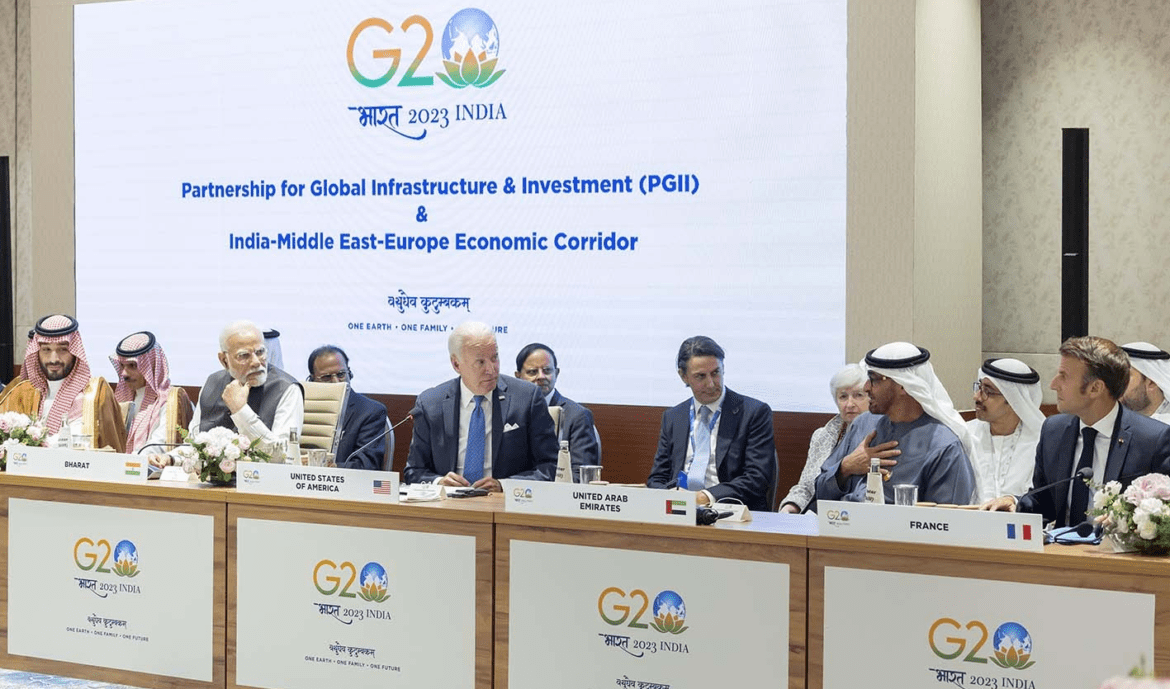The recent announcement of the India-Middle East-Europe Economic Corridor (IMEC) during the G20 summit in New Delhi has sent shockwaves through Pakistan, sparking resentment, and igniting a fervent debate about the country’s foreign policy and its ability to attract international investments. The IMEC, a colossal trade and investment initiative aimed at connecting India with the Middle East and Europe, comes with a staggering price tag of $1 trillion and the promise of millions of job opportunities. While this initiative promises to reshape the region’s economic landscape, Pakistan stands on the sidelines, wondering where it all went wrong.
The IMEC is not just another infrastructure project; it’s a game-changer that will significantly enhance trade between India, the Middle East, and Europe. It challenges China’s Belt and Road Initiative head-on, offering a compelling alternative for countries seeking to diversify their investments. Unfortunately for Pakistan, it wasn’t invited to the G20 summit in New Delhi where the IMEC was unveiled, adding to the country’s growing list of missed opportunities.
Saudi Arabia, a key investor in Pakistan, is now considering shifting its focus to the IMEC, drawn by its improved access to lucrative European and Middle Eastern markets. The prospect of losing up to $25 billion in Saudi investment is alarming for Pakistan, further highlighting the consequences of its exclusion from the IMEC.
The IMEC’s announcement has not only exposed Pakistan’s diplomatic isolation but also magnified the divisions within its political landscape. The Pakistan Muslim League-Nawaz (PML-N) and the Pakistan Tehreek-e-Insaf (PTI), the country’s two major political parties, have resorted to finger-pointing. PML-N accuses PTI of sabotaging the project, while PTI fires back, accusing PML-N of incompetence. Such political infighting only underscores Pakistan’s inability to present a united front on the international stage.
This pivotal moment should serve as a wake-up call for Pakistan’s leadership. The IMEC’s emergence has illuminated Pakistan’s failure to attract foreign investments and leverage its strategic location. With a mounting debt burden and a weakening currency, the country can ill afford to miss out on opportunities like the IMEC.
Moreover, Pakistan’s strained relations with India over the years have further isolated it from regional endeavors. While historical conflicts persist, the IMEC’s announcement underscores the importance of setting aside differences for the greater economic good. Pakistan must recognize that focusing on fostering closer ties with India and the Western world could be the key to reversing its fortunes.
China has been a significant source of investment for Pakistan, and it remains an essential partner. However, over-reliance on a single ally can be risky, as the IMEC’s rise indicates. Diversifying foreign relations and investments is crucial for Pakistan’s long-term economic stability and geopolitical influence.
In conclusion, the IMEC represents an opportunity that Pakistan cannot afford to ignore. This ambitious initiative, set to reshape regional trade dynamics and challenge China’s dominance, has put Pakistan’s shortcomings into sharp focus. It is high time for Pakistan’s government to reassess its foreign policy, prioritize economic diplomacy, and work towards becoming an attractive destination for foreign investments. Pakistan’s future hinges on its ability to adapt to changing global dynamics and seize opportunities like the IMEC to propel itself onto the international stage.
The opinions expressed in this article are those of the author. They do not purport to reflect the opinions or views of Khalsa Vox or its members.




